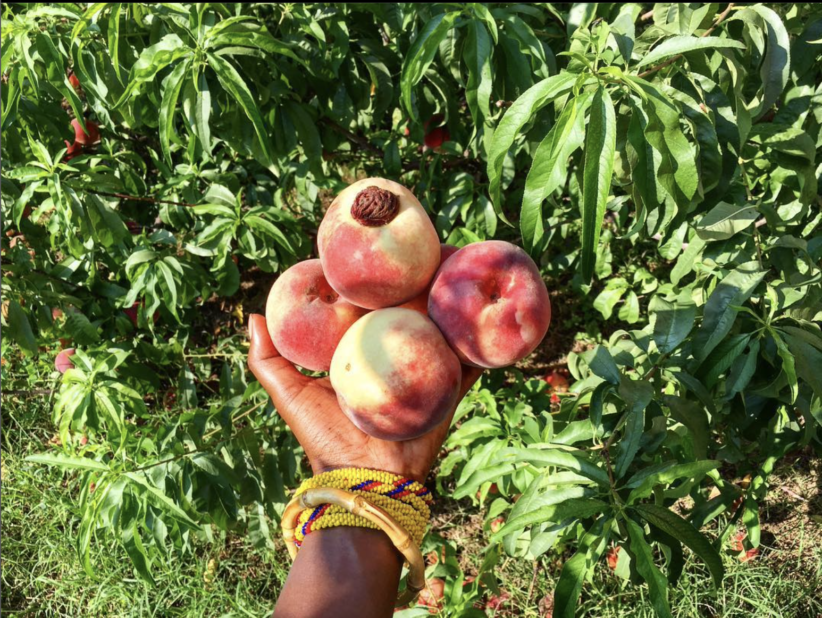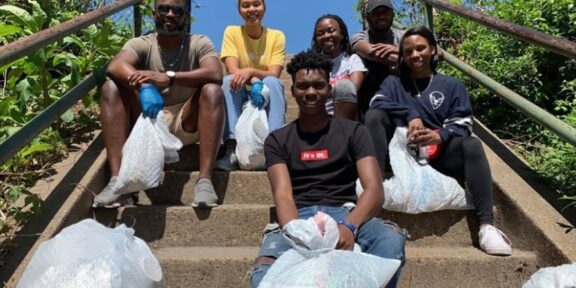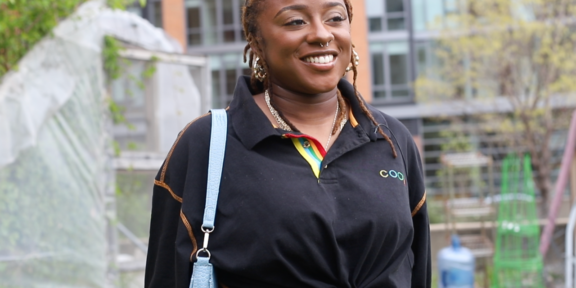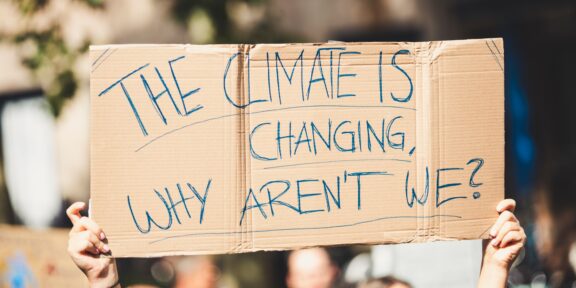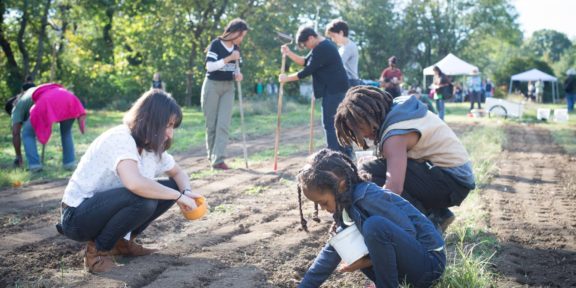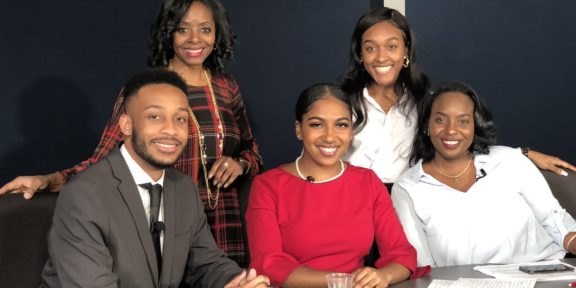By Maxie Harrington
Howard University News Service
When was the last time you ate something that you grew, fostered and cared for with your own hands? Have you ever done this? Unfortunately, many Americans have seldom, if ever, experienced eating food knowing exactly where it was sourced.
A Manufactured Desert
The standard American diet consists of about 70% processed foods, and this number only grows with the effects of lower incomes or food deserts caused by food apartheid. The term “food desert” is actually becoming outdated, because it does not properly acknowledge the root of the issue it is trying to address. “Desert” has the connotations of not only being desolate and unlively (which is not true about the affected communities), but it also implies that these “deserts” are naturally occurring, when they are in fact the direct result of systematically oppressing specific communities. The T. Colin Campbell Center for Nutrition Studies states that these implications create “thoughts of a barren landscape devoid of life, vibrancy and abundance.” These communities, of course, are usually predominantly Black and Brown, and are full of culture, life and potential in every sense of the word.
Along with this, the portion of unprocessed foods that Americans do eat are not sourced from within the U.S.. Over half of the produce Americans eat comes from Canada and Mexico. Food begins to lose its nutrients within 24 hours of being harvested, which means by the time food reaches grocery stores, sometimes weeks after being harvested, it is significantly less nutrient than it would be if home grown or even coming from a local farm or garden. It should also be noted that the workers who are harvesting all of this produce are extremely exploited and are not paid nearly what they should be. Oftentimes they are being taken advantage of due to their citizenship status, becoming extremely reminiscent of indentured servants.
The Greater Pittsburgh Community Food Bank is a member of Feeding America and stands by the phrase “Food Justice is Social Justice.” On their website, the food bank organizers explain the importance of being intentional with the language being used to describe issues to the general public and/or officials. They note how the connotation of the term “food desert” leaves out the fact that apartheid “also points to the discrimination of communities of color when it comes to economic opportunities.”
Malik Yakini, a Detroit food activist, notes that the individuals who live in so-called food deserts likely would never refer to their communities in this way, as it is a term “imposed by outsiders.” He adds that the term could, intentionally or not, ignore the successes and history of a community and only focus on what it does not have.”
People have a great need for food security. The way to reach that is through food sovereignty, which is the right to choose what food to eat, where it comes from and how it is grown. The six pillars of the movement are, (1) focusing on food for people, (2) building knowledge and skills, (3) working with nature, (4) valuing food providers, (5) localizing food systems, (6) putting control locally and, (7) the idea that food is sacred. These pillars were established in 2007, in the “Declaration of Nyéléni,” site of the first global forum on food sovereignty.
“Food sovereignty is the right of peoples to healthy and culturally appropriate food produced through ecologically sound and sustainable methods, and their right to define their own food and agriculture systems. It puts the aspirations and needs of those who produce, distribute and consume food at the heart of food systems and policies rather than the demands of markets and corporations.”
The forum set out to follow the foundation that had previously been laid for food sovereignty in 1996 by Via Campesina at the FAO World Food Summit in Rome. The goal of both meetings was to discuss and establish a global effort toward food sovereignty by creating an alliance of social movements.
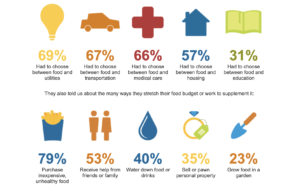
“Most of us are food producers and are ready, able and willing to feed all the world’s peoples. Our heritage as food producers is critical to the future of humanity. This is especially so in the case of women and indigenous peoples who are historical creators of knowledge about food and agriculture and are devalued. But this heritage and our capacities to produce healthy, good and abundant food are being threatened and undermined by neo-liberalism and global capitalism. Food sovereignty gives us the hope and power to preserve, recover and build on our food producing knowledge and capacity.”
The need for food sovereignty is becoming increasingly prevalent in the United States, and this was especially exposed due to the pandemic.
“In 2020, 35.3%of households with incomes below the federal poverty line were food insecure. Food-insecure households include those with low food security and very low food security. Rates of food insecurity were substantially higher than the national average for single-parent households, and for Black and Hispanic households. Food insecurity was more common in both large cities and rural areas than in suburban areas.”
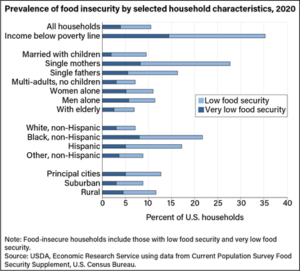
Food insecurity disproportionately affects Black and Brown communities in the United States. According to Feeding America, it is estimated that around 24% of the Black community faced food insecurity in 2020 and Black children are nearly three times more likely to live in a food insecure household compared to white children. Along with this, though the overall poverty rate in the United States is at 11.4%, the poverty rate within the Black community is significantly higher at 19.5%, and that of the non-Hispanic white community is at 10.1%.
Numerous socio-political and social factors contribute to the disparities that face the Black community. There is also a long history of the mistreatment of Black people that goes back centuries, and that is only if we look within the United States. With this being said, there are hundreds and thousands of people across the United States, trying to take it upon themselves to combat the harmful systems that have been put in place. Most civil rights movements have begun and perpetuated at the grassroots level. This is also the case in regard to combating food insecurity.
Cultivating a Solution
A well known and often underestimated form of this is gardening. Whether in your own backyard or in the form of a community garden, this is an excellent tool in the effort toward sustainability and self-sufficiency.
Zoé Coker, a sophomore African American studies major at Howard University, is also the president of the HALO Green Garden, the community garden at Howard. Coker’s introduction to gardening came from her grandmother, Peggy, whom she has seen garden her entire life.
“She would always have enough vegetables, herbs and fruits to sustain herself, which has always been something I heartedly admire,” Coker said. “She would often pull tangerines from her tree and slice them for my cousin, Kayin, and myself. Back then, I thought this was more so just a ‘grandmother’ thing to do, but I realized that she actually had extensive knowledge on planting and growing, which has become an echo for my involvement with agriculture and gardening now.”
Howard’s HALO garden was started by students who founded an organization called the Society for Holistic Living and Meditation (SHLM) in 2010 and has since been maintained by students of the organization.
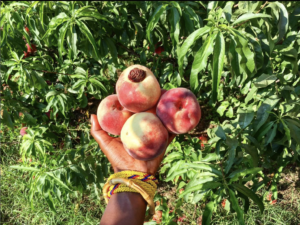
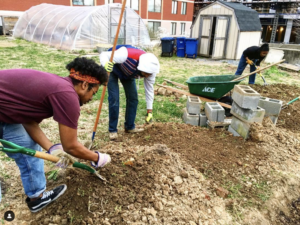
Image 2:Members of the Halo Garden work on building a new flower bed. (Photo: SHLM)
“I think some of the benefits of planting your own food and understanding the uses of various plants allows you to be comfortable with nourishing and caring for yourself, which is not something that is allotted to everyone from an early point in their lives,” Coker said. “To me, it removes a considerable amount of barriers for determining what is beneficial to you in terms of feeding yourself. You become a central part in controlling what you believe will sustain yourself. Almost like self-determination on a very interpersonal level.”
According to a study posted to the American Journal of Public Health, home gardeners consumed fruits and vegetables 4.6 times per day, and nongardeners only 3.9 times per day, compared to community gardeners who consumed fruits and vegetables 5.7 times per day. Meaning 56% of community gardeners met the national recommendation of eating fruits and vegetables at least 5 times per day, compared to 37% of home gardeners and only 25% of nongardeners.
Community gardens serve as a unique and beautiful solution to helping feed residents in both rural and urban areas, along with helping to foster a true sense of community. Along with this, community members without homes would have a way to access healthy food without having to spend money that is already hard to come by.
“I think that community gardens can be useful to communities, as it can be a material way to care and provide for communities through nourishment,” Coker said. “Also, when you are in these spaces, you have the possibility of learning about food distribution systems and then how to subvert the ways in which they harm oppressed classes and populations.”
http://www.instagram.com/p/B0hQFtLAzTe/
Poor Diet Culture
Currently, poor diets are killing more people globally than tobacco is. In 2017, a study on diabetes published in The Lancet, an international medical journal, states that poor diet was responsible for over 10.9 million deaths globally, making up 22% of all adult deaths in 2017. This study contains contributions from over 130 scientists from over 40 countries and is considered to be the most extensive analysis of the effects of diet on health that has been completed to date. Colorful advertisements with catchy theme songs distract from the fact that the FDA advisers and pharmaceutical companies often do not disclose the financial ties between the two, especially in regard to approving drugs that have been tested to have fatal effects, according to a Science commentary.
The main culprit behind the deaths caused by poor diet, is cardiovascular disease (CVD). This is especially relevant to the Black community as the rate of heart disease among African Americans is 20% higher than for white Americans. The Centers for Disease Control and Prevention notes that between the ages of 18-49, African Americans are two times as likely to die from heart disease.
Though no one is immune, cardiovascular disease can be combated through preventive measures, with changes in diet being at the top of the list. According to the Howard School of Public Health, “The best diet for preventing heart disease is one that is full of fruits and vegetables, whole grains, nuts, fish, poultry and vegetable oils; includes alcohol in moderation, if at all; goes easy on red and processed meats, refined carbohydrates, foods and beverages with added sugar, sodium and foods with trans fat.”
Studies showed that those who maintained a diet that followed these principles had a 31% lower risk of heart disease, 33% lower risk of diabetes and a 20% lower risk of having a stroke.
Image taken from the Harvard School of Public health website, originally created by the Journal of the American Cardiology
These health statistics, along with discrimination within the health-care system, are two pieces of the reality facing Black Americans and other minorities as well. There is seemingly an obstacle at every turn, so it is important to make the effort to be proactive rather than reactive when it comes to taking your health into your own hands.
The fight for accessibility, sustainability and sovereignty continues, but significant strides are being made daily. Though the idea of starting a home or community garden may seem small or futile when compared to the environmental battles we are facing, every small effort truly does help. There is power in controlling what one consumes and how it is harvested. Additionally, there is deeper meaning in being connected to the earth we inhabit. Our ancestors before us knew the land out of necessity and were able to sustain and heal themselves through studying horticulture, so we should take a moment, reflect and see what there is to learn from those who came before us.
Maxie Harrington is a reporter for HUNewsService.com.

